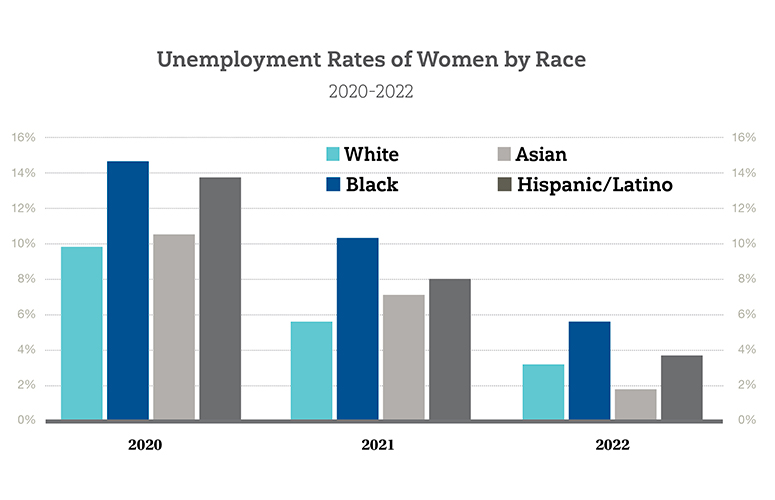
Shifting Unemployment Trends
By Kyle Sullender, Executive Director of Focus NJ On Sep 1, 2023During the pandemic, women in New Jersey were more likely to be unemployed than male workers in the state. Three years later that is no longer the case.
Prior to the onset of the pandemic in early 2020, unemployment among men and women in New Jersey was about even, according to the Bureau of Labor Statistics. At the end of 2019, unemployment among men in New Jersey was 3.6% compared to 3.4% for women.
By the end of 2020, the pandemic’s disproportionate impact on women was evident. By the end of the year, BLS estimated the unemployment rate among women to be 10.8% compared to 8.6% for men.
This trend continued through 2021, though the difference between male and female workers had narrowed considerably. By year’s end, BLS estimated the unemployment rate among New Jersey’s female workers to be 6.7% compared to 6.0% for men.
By the end of 2022, the unemployment rate among women (3.6%) finally fell back below the rate for men (4.1%), newly released estimates from BLS show.
The surge in unemployment among women has been widely covered over this span, even earning the moniker of “she-cession.” A paper from Harvard economic professor Claudia Goldin published in 2022 noted that although impacts of the pandemic on women were real, Black women with less education and lower earnings were even more disproportionately impacted.
Among her findings, Goldin noted that “the ability to balance caregiving and work differed greatly by education, occupation, and race” and that these, among other factors, disadvantaged Black women more than most groups.
A Focus NJ analysis in the March 2022 edition of New Jersey Business Magazine noted a similar trend. In 2020, the unemployment rate among Black women in New Jersey was 14.6% compared to 9.8% for white women. Unemployment among Black women in New Jersey in 2022 remained above pre-pandemic levels, but had dropped considerably to 5.6%.
While unemployment overall has fallen since the onset of the pandemic for all groups, the vulnerabilities exposed in our labor force are unlikely to have been resolved so quickly. These lessons should be instructive as to where investments are made preparing for the next economic crisis.
To access more business news, visit NJB News Now.
Related Articles:





